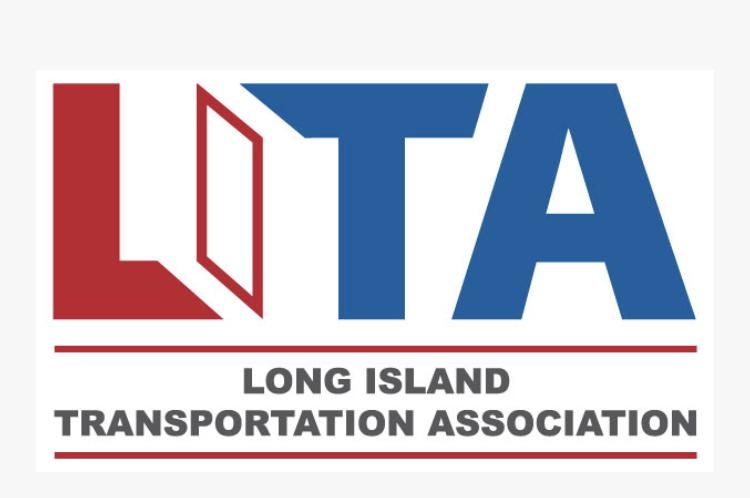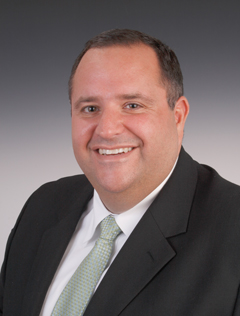- Details
- Category: Industry News
 LITA President Doug Schwartz
LITA President Doug Schwartz
Despite the best efforts of a group of internet pranksters, the joint Zoom meeting between the Long Island Transportation Association (LITA) and the Limousine Association of New Jersey (LANJ) on October 1 brought lots of valuable information and key takeaway for the members and guests taking part. More than 40 members were logged into Zoom for the virtual get-together, which included special guests Edward Kaye of Schickler Kaye and Brian Ludlow from Alternative Claims Management.

LITA President Douglas Schwartz of Executive Ground Transportation and LANJ President Jason Sharenow of Broadway Elite Worldwide served co-moderators for the meeting, which kicked off with a brief state of the industry in the two metro areas. Schwartz was happy to report that LITA is still seeing support from its membership base, largely in thanks to a new, reduced dues structure. While business/corporate work remains largely stagnant—Schwartz says regional rail ridership is at 30 percent—retail work remains busy, with weekend events and getaways very popular with clients.

Regarding his state’s business, Sharenow concurred with Schwartz that retail is currently keeping vehicles moving. Weddings have returned and have provided steady work for operators. As a selling point to his fellow operators and a safety measure for clients, Sharenow suggested that operators limit capacity on their minibuses; this often results in customers booking more than one vehicle for the wedding party.
 LANJ President Jason Sharenow
LANJ President Jason Sharenow
Kaye—well known in the industry from his time with Advantage Lending and Access Capital—was the afternoon’s first guest speaker. He provided much-needed insight into what operators can expect as they approach a third deferral for their loans.
“Banks have some awful choices to make,” said Kaye. “They’re between a rock and a hard place.”
In short, lenders are hesitant to offer further extensions on payments; however, with the used car market stagnant—particularly commercial vehicles—they are not particularly keen on taking back their collateral. Kaye advised operators to be ready to negotiate and be proactive when speaking with their lenders; this includes speaking “up the chain” at your bank and preparing a clear financial story that includes your past, current, and future business outlook.

Ludlow, another familiar face at industry and association meetings, was next on the docket, providing an overview of the services provided by Alternative Claims Management. For the uninitiated, the company covers operators for loss of revenue and diminished value for not-at-fault accident claims. Unfortunately, as Ludlow began his presentation, a group of online hackers crashed the meeting, forcing the hosts to end things early.
In a statement on Facebook the following day, Schwartz said that the hacking was a learning experience, and the associations will plan accordingly in the future (i.e., make Zoom info private) to prevent this from happening again.
Visit lanj.org or facebook.com/groups/531293297293864 for more information.
[10.06.20]
- Details
- Category: Industry News
LGE Coachworks came into 2020 celebrating 15 years in the industry as a limobus and coach builder. In the previous two years, LGE continued to see a growing trend in their line of custom and private builds including a mobile meditation studio, mobile offices, and the new JetBus model, which was created to replicate the interior of client’s private aircraft.
 Members of the Las Vegas Police Protection Association with Pennsylvania State Police at LGE headquarters in North East, Pa.
Members of the Las Vegas Police Protection Association with Pennsylvania State Police at LGE headquarters in North East, Pa.
“It was nice to see the diversity in our production schedule with a mix of our traditional builds and the unique and creative ideas our private clients were requesting,” says LGE Owner & President David Sacco.
Unfortunately, two weeks after returning from the CD/NLA Show in Las Vegas show in February, 90 percent of LGE’s scheduled production was delayed with operators already seeing the decline in travel and preparing for the rough times ahead. The company got lucky when some private owners were still moving forward with their builds while other businesses were looking to provide travel to employees that were considered essential but were unable to travel in the same manner before the pandemic.
“Our ability to build mobile offices equipped with the technology to keep those workers on the road also kept our team in the shop doing what they do best,” says Sacco.
 LVPAA’s new mobile command center
LVPAA’s new mobile command center
A call from the Las Vegas Police Protection Association (LVPPA) for a mobile command center got the LGE team back to work once again. This build required seating for 18 passengers with space of 24 inches per person as well as a kitchen area with large storage, lavatory with full size sink and storage, large power awning, and a secure private office with locking door and desk area. The vehicle is not for transporting passengers or law enforcement, but is used for obtaining eyewitness reports, debriefing officers, and providing an area to cool down when the officers are out in the Vegas heat for extended periods. The next week the LVPPA 40’ Freightliner was pulled into production and was complete within six weeks.
Officers representing the LVPPA traveled to the LGE headquarters and were joined by members of the Pennsylvania State Police. During the build process, LGE also gained another contract for a second vehicle for another agency with similar requirements. This vehicle is scheduled to be completed by the end of October. The production schedule is full through the end of the year with LGE building vehicles for the commercial transportation industry, medical units, and private vehicles.
“To say this year has been difficult is an understatement,” says Sacco.
“But on the positive side we have seen this team be able to go from stock limo builds, to full custom private vehicles, PPE equipment manufacturing and back again, which gives us the confidence in knowing we have done our best to weather this storm,” adds Sales Manager Alexa Sacco.
Visit lgecoachworks.com for more information.
[10.05.20]
- Details
- Category: Industry News
The U.S. private motorcoach, school bus, and domestic passenger vessel industries have collectively furloughed or laid off an estimated 308,000 employee jobs over the last eight months due to the COVID-19 pandemic. The American Bus Association (ABA), United Motorcoach Association (UMA), National School Transportation Association (NSTA), and Passenger Vessel Association (PVA) continues to urge Congress to include the bipartisan CERTS Act (S.4150/H.R. 7642) as part of any COVID-19 stimulus package.
Despite being critical industries, they have suffered unprecedented and catastrophic economic losses over the past eight months due to the drastic declines in job commuting, group travel, and school closures. Unlike other modes of transportation, such as airlines, rail and public transit, bus and vessel industries have not received direct economic relief to date. Many companies have already shuttered and many more are on the brink of closing their doors forever.

According to the associations:
Prior to COVID, the three industries collectively employed more than 460,000 trained and experienced employees to deliver their passengers safely to and from their destinations. The 308,000 drivers, captains, deck hands and mechanics that have been furloughed deserve relief as much as pilots, flight attendants, airplane mechanics, rail engineers and public transit workers that have already received at least some form of direct support enabling them to keep their jobs over the same time period.
The CERTS Act would create a much needed $10 billion grant and loan program administered by the Department of Treasury to prioritize relief for these employees and assist with expenses related to debt service on vehicles, vessels, insurance, rent, utilities and equipment in order to operate safely for these capital-intensive companies. With 56 bipartisan cosponsors in the Senate and 235 in the House (as of October 2, 2020), the CERTS Act has more support than ANY pandemic relief bill that has been introduced.
The U.S. motorcoach industry provides nearly 600 million passenger trips per year, just under annual passenger trips made by airlines, ensuring vital intercity connections, charter and tour operations supporting critical military and emergency evacuation work along with the travel and tourism industry. The US private school bus industry provides nearly 40 percent of the nation’s school bus service in 200,000 yellow school buses to 26 million children every day that rely on the school bus as the only way to get and from school in the safest way possible. The U.S. domestic passenger vessel industry carries more than 200 million passengers annually and includes ferries, dinner boats, sightseeing and excursion vessels, whale watch and wildlife tour boats, sailing vessels, and small U.S. overnight cruise ships.
ABA, UMA, NSTA, and PVA urge Congress to swiftly enact the CERTS Act to preserve jobs and these critical industries.
[10.05.20]

